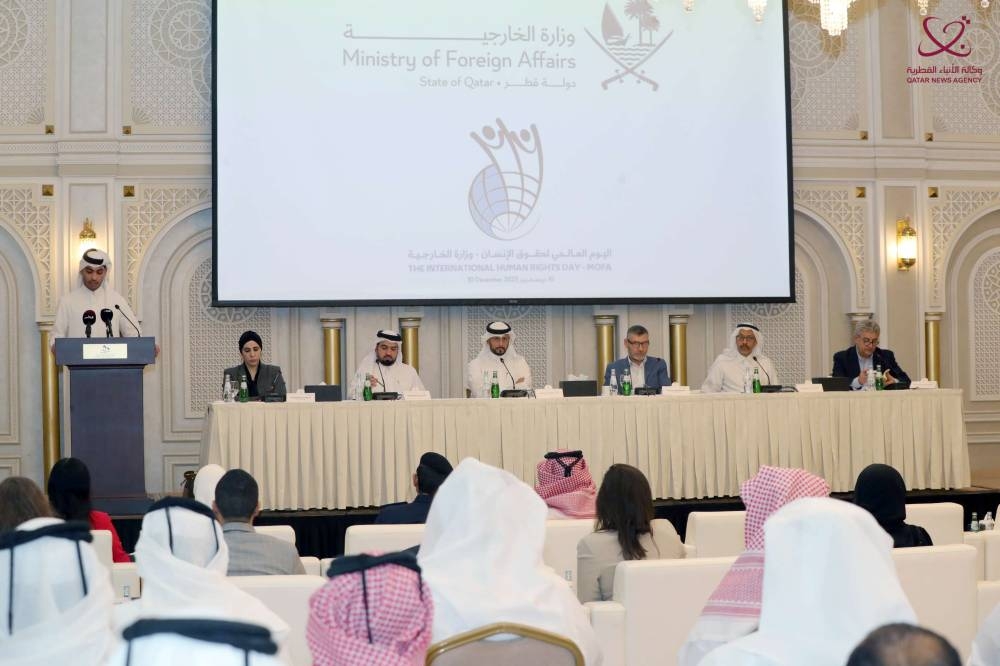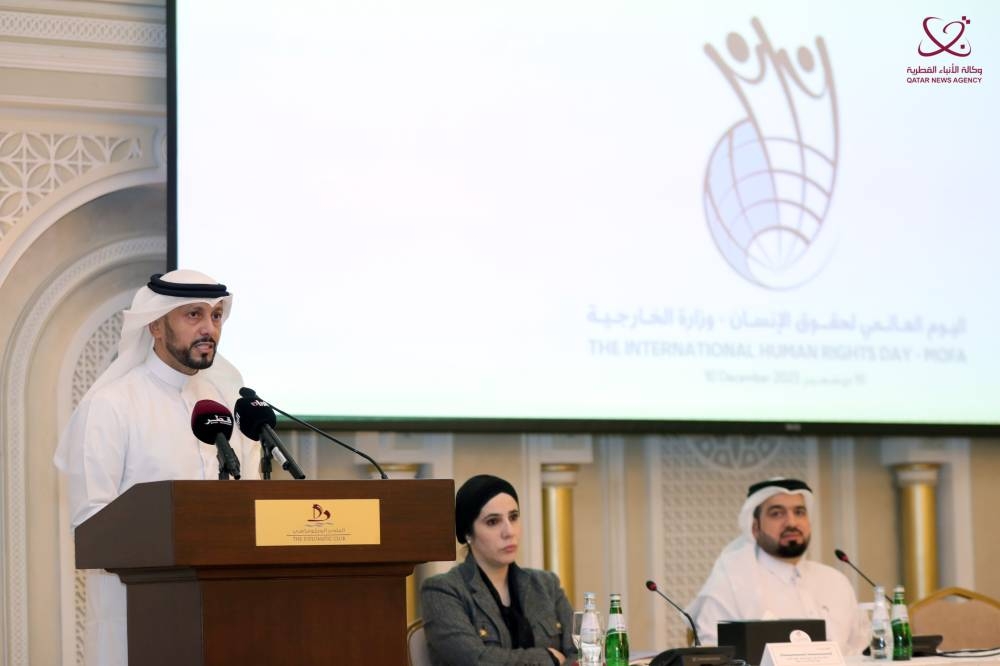The Human Rights Department at the Ministry of Foreign Affairs Sunday held a panel discussion on the protection and promotion of human rights in the occupied Palestinian territories and the region to mark the 75th anniversary of the Universal Declaration of Human Rights (UDHR).
The panel, which featured the participation of a contingent of experts and professional academics in international and humanitarian law, as well as public policies, discussed the legal and human rights dimensions of the Palestinian-Israeli conflict, prospects of holding Israel to account for its persistent violations against the international humanitarian law and international human rights law, as well as highlighting the roles undertaken by Qatar for the sake of safeguarding the international peace and security and promoting human rights.
HE the Director of the Human Rights Department and Deputy Chairman of the National Committee for International Humanitarian Law, Dr Turki bin Abdullah Zaid al-Mahmoud, outlined that marking the 75th anniversary of UDHR this year came under the motto: "Dignity, Freedom, and Justice for All" to further underscore the significance of taking urgent measures to empower rights for all, especially for vulnerable and marginalised cases.
Qatar's belief in human rights and the elimination of all aspects of discrimination with the advancement of human rights is not a new thing, but stems from the solid Islamic religion, culture, as well as Islamic and Arab culture and identity, he said.
He added that Qatar is protecting and promoting human rights in recognition of its duties and drawing inspiration from its constitution which enshrines in its third chapter under rights and duties, 24 human rights, which are protected, promoted, and consolidated by the state.
He pointed out that the milestones achieved by the State of Qatar in human rights are not restricted to a limited aspect or category and are not confined to a narrow geographical framework, but rather there are achievements in protecting the rights to education, health, security, safety, infrastructure, environment et Al, indicating that there are tangible results in the humanitarian support and helping refugees and those afflicted by wars and conflicts which Qatar is providing to all, regardless of nationalities, races or religions.
He outlined that notwithstanding the increasing global interest in protecting human rights, however there are flagrant and grave violations of these rights in the Palestinian territories due to the disproportionate use of the Israeli military force against innocent civilians, along with the continuation of bombardment of the Gaza Strip and commission of massacres, pointing out that such violations reached the point where what is happening there is considered part of the UN Convention on the Prevention and Punishment of the Crime of Genocide that should be prosecuted by the International Criminal Court (ICC).
Dr al-Mahmoud emphasised that Qatar continues to play an active and effective role in promoting and protecting human rights both at the regional and international levels, noting the critical efforts being undertaken by the State in bolstering international peace, settling disputes, supporting developed countries, beefing up the initiatives that promote and protect human rights, in addition to reinforcing them without discrimination and effectively countering human rights violations perpetrated worldwide.
He pointed out that the State of Qatar continues its efforts and policies that primarily aim to safeguard international peace and security, as well as promote human rights at all levels, noting that the Qatari mediation between the Palestinian and Israeli sides produced an agreement under which a humanitarian pause is implemented and resulted in the release of civilian prisoners and detainees, allowing the entry of relief assistance and aid.
In a related context, the participants in the panel discussion, reviewed the efforts of preserving international peace and security, as well as promoting human rights stemming from the Qatari mediation and its outcomes. They discussed the roles of regional and international parties in reinforcing just and peaceful solutions and engaging in a constructive dialogue on the applicable solutions in this framework.
The participants discussed the legal and humanitarian perspective of the Israeli occupation, along with the role of the international human rights institutions and civil society in pursuit of achieving justice and ensuring accountabilities for all concerned parties, in addition to discussing the process of monitoring and documentation carried out by those institutions to prepare the litigation files accordingly.


